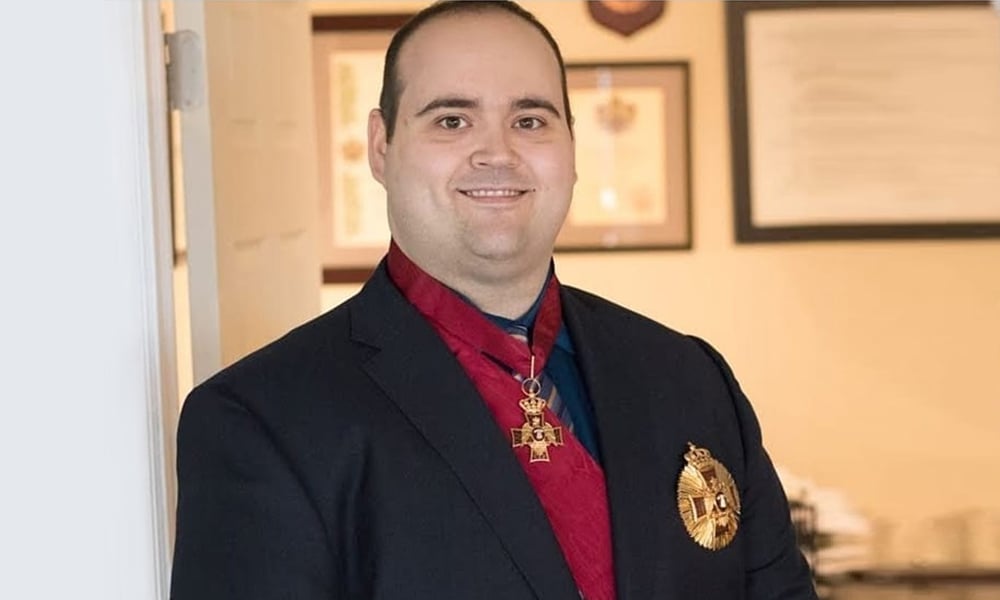
Paralegals can expand scope by becoming regulated immigration consultants: LSO

Three paralegals have filed claim with the Superior Court alleging the Law Society of Ontario is incorrectly restricting paralegals from practising the full scope of immigration law unless they become regulated immigration consultants.
“Lawyer, paralegal student at law – we're all one class under the [Immigration and Refugee Protection Act],” says Tony Caruso, who filed the application along with Jeffrey Smith and Kashif Ali on Sept. 16. Named as respondents are the LSO, Minister of Justice and Attorney General for Canada, Attorney General for Ontario and the Minister of Immigration, Refugees and Citizenship Canada.
As LSO members, paralegals are only permitted to perform immigration-law services directly related to an Immigration and Refugee Board proceeding. Drafting applications, documents or otherwise providing legal services or advice on immigration applications is out of bounds, unless they join the Immigration Consultants of Canada Regulatory Council which now requires the completion of a one-year graduate diploma course.
The applicants argue this is contrary to s. 91 of the Immigration and Refugee Protection Act. Section 91(1) prohibits a person from directly or indirectly advising or representing a foreign national on the submission of their expression of interest to be invited to apply for residence in Canada. Exempt from this prohibition is a lawyer or other member in good standing of a law society. Also exempt is a member of a body the Minister designates by regulation, such as the ICCRC.
The applicants argue that s. 91 gives paralegals “unrestricted scope of provision of legal services as pertains to immigration matters, save for appearances at the Federal Court.” They add that the conflict in policies between the IRPA and the LSO should be resolved in favour of the federal legislation according to the doctrine of paramountcy, that an act of the parliament of Canada outweighs a provincial tribunal such as the LSO.
The LSO and the ICCRC share regulatory authority over paralegals providing immigration and refugee legal services, says Jennifer Wing, spokesperson for the LSO. While paralegals servicing clients before the Immigration and Refugee Board of Canada are under LSO’s purview, “other services” are supervised by the ICCRC, she says.
Wing declined to comment further on Caruso’s lawsuit, as the LSO is party to the proceedings.
Caruso and his co-applicants argue the status quo reduces safeguards the Federal Government has implemented to protect “vulnerable applicants” looking to become Canadian residents. Changing the system would also reduce backlogs and delays, as applications would be prepared properly, resulting in fewer hearings, said the notice of application.
The applicants are asking the court to clarify whether the Immigration and Refugee Protection Act expressly permits paralegals an unrestricted scope – save the federal court – and if not, which restrictions exist and for whom.
Caruso says he is waiting for the court to assign a hearing date.
The federal government recently created a new regulator for immigration consultants: The College of Immigration and Citizenship Consultants. Those paralegals interested in the full scope in immigration practice will need to complete a new diploma program being offered by Queen’s University.
“Once the new regime comes into effect, Ontario paralegals applying to qualify as immigration consultants for the first time will have to meet new educational requirements,” says Wing. “Paralegals who previously qualified as immigration consultants will be grandparented into the new regime.”
When the Queen’s program was announced, immigration lawyers told Canadian Lawyer the move was a mistake, saying it lent legitimacy to an industry marred with corruption.
The regulated immigration consultant industry has been growing since 2001, when the Supreme Court of Canada found non-lawyers could represent people in B.C. immigration hearings. Accusations of fraud, incompetence, lack of policing or professional and ethical standards have led to two parliamentary reviews and the regulatory body being reformed three times.